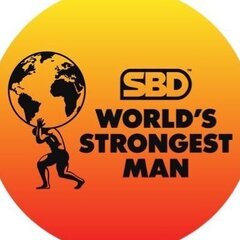Leaderboard
Popular Content
Showing content with the highest reputation on 10/20/2018 in all areas
-
I realize how confusing it is to see people discussing peptides when you can't even wrap your head around anabolic steroids yet! "Mod what?" "Igf what???" Here's a little quick guide I created on reconstituting certain peptides. There's a ton of information out there on peptides and this guide barely scratches the surface of information on them, hence why it's called the "Quick Guide". Don't use this guide as your only source of peptide info! -/:Peptides:\- Peptide: GHRP 6 Amount: 5mg Reconstitution: 2.5cc (2.5ml) BAC Water 1:2 Ratio Syringe: 1/2cc 29-31g Dosage: 5 Units = 100mcg Injection: SubQ Daily Dosage: 3x Daily. 100mcg upon waking, 100mcg post workout, 100mcg pre bed Profile: GHRP-6 is a peptide in the growth factor family. It has strong effect on the release of Growth Hormone (GH). Its main use is to promote food intake by stimulating hunger and aid in energy metabolism. Peptide: GHRP 2 Amount: 5mg Reconstitution: 2.5cc (2.5ml) BAC Water 1:2 Ratio Syringe: 1/2cc 29-31g Dosage: 5 Units = 100mcg Injection: SubQ Daily Dosage: 3x Daily. 100mcg upon waking, 100mcg post workout, 100mcg pre bed Profile: GHRP-2 is short for Growth Hormone Releasing Peptide 2, which basically refers to an hgH secretagogue. It can effectively increase the amount of natural secretion of hgH in the test subjects body and secrete it while stimulating the pituitary gland at the same time. Peptide: Ipamorelin Amount: 2mg Reconstitution: 1 cc (1ml) BAC Water 1:2 Ratio Syringe: 1/2cc 29-31g Dosage: 5 Units = 100mcg Injection: SubQ Daily Dosage: 3x Daily. 100mcg upon waking, 100mcg post workout, 100mcg pre bed Profile: Ipamorelin is a synthetic peptide that has powerful Growth Hormone releasing properties. Unlike GHRP-6/2, it will not raise plasma cortisol or prolactin levels. Peptide: CJC-1295 DAC Amount: 2mg Reconstitution: 1cc (1ml) BAC Water 1:2 Ratio Syringe: 1/2cc 29-31g Dosage: 50 Units = 1mg (1000mcg) Injection: SubQ Weekly Dosage: 1-2 Injections per week. Total = 2mg per week Profile: CJC-1295 is a tetrasubstituted 30-amino acid peptide hormone, primarily functioning as a growth hormone releasing hormone (GHRH) analog. One of the advantages of CJC-1295 over traditional GHRH or rHGH is its ability to bioconjugate with serum albumin, thus increasing its half-life. Peptide: CJC-1295 no DAC (Mod-GRF (1-29)) Amount: 5mg Reconstitution: 2.5cc (2.5ml) BAC Water 1:2 Ratio Syringe: 1/2cc 29-31g Dosage: 5 Units = 100mcg Injection: SubQ Daily Dosage: 3x Daily. 100mcg upon waking, 100mcg post workout, 100mcg pre bed Profile: CJC 1295 no DAC is a short acting Growth Hormone Releasing Hormone (GHRH) which causes the anterior pituitary to release more growth hormone. Peptide: PEG-MGF Amount: 2mg Reconstitution: 2cc (2ml) BAC Water 1:1 Ratio Syringe: 1/2cc 29-31g Dosage: 50 Units = .5mg (500mcg) Injection: Intramuscular Bilaterally Weekly Dosage: 2x per week on off days in lagging muscles. Total = 400mcg - 2000mcg Profile: Mechano growth factor, a peptide hormone produced in muscles in response to training, considered an isoform of IGF-1 Peptide: IGF LR3 Amount: 1mg Reconstitution: 1cc (1ml) .6 AA 1:1 Ratio Syringe: 1/2cc 29-31g Dosage: 5 Units = 50mcg Injection: Intramuscular Bilaterally or SubQ Daily Dosage: 5-7 days per week pre workout. Total = 100mcg (If using IM Bilaterally, 50mcg in each muscle to be trained) Profile: IGF-1 is a hormone similar in molecular structure to insulin. It plays an important role in childhood growth and continues to have anabolic effects in adults. Peptide: TB500 Amount: 5mg Reconstitution: Varies. Preferably 2.5cc (2.5ml) 1:2 Ratio Syringe: 1cc 29-31g Dosage: 100 units (1ml) = 5mg (5000mcg) Injection: Intramuscular near afflicted areas Weekly Dosage: 5mg 1-2x per week during loading phase (4-6 weeks). 5mg once bi-weekly during maintenance Note: Do not reconstitute this peptide until 1-2 days before injection since you will most likely use all 5mg at once. Profile: TB500 was identified as a gene that was up-regulated four-to-six fold during early blood vessel formation and found to promote the growth of new blood cells from the existing vessels. This peptide is present in wound fluid and when administered subcutaneously, it promotes wound healing, muscle building and speeds up recovery time of muscles fibres and their cells. Peptide: Ibutamoren (MK-677) Amount: 25mg/ml 15-30ml Reconstitution: None. Orally active Syringe: 1ml oral syringe Dosage: 100 units (1ml) = 25mg Daily Dosage: 25-50mg Profile: Ibutamoren is an orally active growth hormone secretagogue, mimicking the GH stimulating action of the endogenous hormone ghrelin. It has been demonstrated to increase the release of, and produces sustained increases in plasma levels of several hormones including growth hormone and IGF-1, but without affecting cortisol levels. -/:Specialty Peps and HGH:\- Peptide: Igtropin IGF LR3 Amount: .1ml (100mcg) per vial Reconstitution: 1cc (1ml) BAC Water 10:1 Ratio Syringe: 1/2cc or 1cc 29-31g Dosage: 50 Units = 50mcg Injection: Intramuscular Bilaterally or SubQ Daily Dosage: 5-7 days per week pre workout. Total = 100mcg (If using IM Bilaterally, 50mcg in each muscle to be trained. Reconstitute one vial each day. This is because the compound may not hold stable in BAC water alone for several days. If you wish to reconstitute multiple vials at a time, .6 AA may be a better reconstituting option) HGH: Kigtropin/Hygetropin/Generic Chinese HGH Amount: 10iu per vial Reconstitution: 1cc (1ml) BAC Water Syringe: 1cc 29-31g Dosage: 100 units = 10iu Injection: Intramuscular or SubQ Daily Dosage: User preference. Normally a variation of morning, post workout and bed time injections. 2-5iu for fat loss and anti-aging. 6iu+ for muscle mass and fat loss -/:SARMs and PPARδ Receptor Agonists:\- SARM: LGD 4033 Daily Dosage: 5-15mg once daily Usage: Stand alone cycle; on cycle; stacked with other sarms; bridge Profile: Most anabolic sarm available on the market currently. Builds lean mass and increases strength. Ramp up dosage slowly to avoid side effects and prevent adaptation. May require a more extensive PCT than other sarms. Duration: 6-8 weeks SARM: Ostarine Daily Dosage: 25mg once daily Usage: Stand alone cycle; PCT; bridge; stacked with other sarms Profile: Less effective than it's brother LGD, but less suppressive which makes it ideal for PCT to help maintain mass. Users experience increased strength, lean mass gains and fat loss. Duration: 8-12 weeks SARM: S4 Daily Dosage: 50-100mg split twice daily Usage: Stand alone cycle; bridge; stacked with other sarms; on cycle Profile: Comparable to Winstrol because of its androgenic properties. Users experience large strength increases, lean mass gains, muscle hardness and vascularity Duration: 8-12 weeks PPARδ Receptor Agonist: GW50156 Daily Dosage: 10-20mg once daily Usage: Stand alone cycle; PCT; bridge; on cycle; stacked with sarms Profile: Although categorized with them, it is not a sarm. GW is Non-hormonal and doesn't require a pct. It is also anti-catabolic. All of this makes it ideal for pct or as an addition to a cycle. Users report large increases in endurance and fat loss. Duration: 8-14 weeks It is important to note that peptides in a freeze dried state are okay to freeze or refrigerate over long durations of time. Once a peptide has been reconstituted, it's shelf life decreases dramatically. DO NOT reconstitute a peptide until you are ready to use it. DO NOT freeze reconstituted peptides. DO NOT freeze or refrigerate SARMS.1 point
-
Egg Whites - The Vitamins, Minerals and Gains When it comes to micronutrients, whole eggs drop a people?s elbow on egg white nutrition. Here are the numbers: Whole eggs have 4% of your daily value (DV) of iron while egg whites have 0%. Whole eggs have 8% of your DV of phosphorus while egg whites have 0.5%. Phosphorus is essential for bone health and also helps transport cellular energy with ATP (adenosine triphosphate). Yes, the same ATP that creatine helps with. Whole eggs have 3% of your DV of zinc while egg whites have 0%. Zinc is essential for immune health and testosterone support. Whole eggs have 5% of your DV of folate while egg whites have 0%. Folate is essential in blood cell formation. Folate helps convert carbohydrate into energy. Whole eggs have 4% vitamin A versus 0% in egg whites. This is vital for healthy vision. Whole eggs have 8% vitamin D while egg whites have 0%. Whole eggs have 26% choline and 191mg lutein and zeaxanthin. There is no doubt about the health benefits from micronutrients. But what about macronutrients? Both have less than one gram of carbs. Whole eggs have around 5g fat versus 0g in egg whites. Protein is 6-7g in whole eggs versus 3 grams in a white. Pastured whole eggs have around 280mg cholesterol versus 0 in egg whites. (I will explain the different eggs later on) The Differences Between Egg Whites and Whole Eggs If going for overall wellness and macronutrient count is not a concern, whole eggs reign supreme. But for body composition, macros are king. This is why the fat in whole eggs forces those dieting with a lower fat diet to use egg whites. Trust me, as a bodybuilder, I prefer the taste of whole eggs and I am sure most of my brethren do as well. BUT one still needs some fat in the diet and the fat and nutrients from whole eggs is a great thing to have, or is it? While regular, inexpensive eggs are okay, they are not great. We try to get ?pastured? eggs, but if needed settle for ?omega 3 enriched? eggs. What is the difference? Commercial Eggs: Chickens raised in packed coups, fed low-quality, grain-based food. Omega-3 Eggs: Feed is supplemented with flax seeds and they may have some access to outside. Pastured Eggs: Chickens are allowed to roam free and eat plants and insects - their NATURAL diet. Always opt for pastured eggs. When those are not available, get omega-3 eggs. When those are not available, as an absolute last option, use commercial eggs. The Take Home When watching macronutrient intake, I recommend you keep at least one egg in your daily intake of food. For example, if I needed 42 grams of protein but wanted to keep fat to around 10 grams for my meal, I would have: 2 whole eggs: 12g Protein 10 egg whites: 30g Protein If you are just a person trying to eat whole, healthy meals and not counting macros, a good breakfast would be: 2 whole eggs 2 Slices Ezekiel bread Grapefruit The Whole Story If you were wondering about egg white nutrition and if egg whites were better than whole eggs, I hope this cleared up all of the confusion you had over what is best for you. Because eating whole eggs for better health and eating egg whites for a sexy body?That's not a game!1 point
-
The nutrition industry is chalk full of myth and hyperbole. Why? Probably because people was notoriety and to sell books. let's face it, rationale, clear headed thinking doesn't get a lot of hype and generate 6 figure book deals. Currently there are a lot of myths floating around about high carbohydrate foods. Most of which are the result of small truths that have been twisted into big lies. It is time to recover the truth and bury some of those myths. Myth #1: High Carbohydrate Foods Make You Fat Carbohydrates have gotten a ?bad rap? because they elicit an insulin response. And as everyone knows, insulin causes us to become fat (or does it?). Unfortunately, when we look closer at the science this idea doesn't quite hold up. Insulin is an endocrine hormone, meaning it affects multiple tissues in the body. Specific to our focus is muscle and fat. When skeletal muscle is ?exposed? to insulin signals the muscle cell to shift to carbohydrate-based metabolism. Interestingly, the overall energy status of the cell plays a role in exactly what happens in the muscle cell. Meaning, if the muscle cell is low on glucose and/or muscle glycogen the insulin signal will instruct the cell to utilize the incoming glucose for fuel and to begin creating muscle glycogen from any spare glucose that is coming in. Additionally, insulin will cause an uptake of fat into the muscle. If the muscle cell is already full of glucose and glycogen and topped off with intramuscular triglycerides then insulin signaling will do all of the things it does in a low energy state but will also turn excess glucose into fat through de novo lipogenesis (a point we will get to later in the article. Insulin also acts on our fat tissue. Insulin does in fact decrease the rate of lipolysis (fat breakdown) in adipose tissue and also it does stimulate fatty acid and triacylglycerol synthesis (fat creation). The science is crystal clear on this. Now it would indeed appear that insulin promotes fat storage? well unfortunately that is the wrong wording for it. Insulin is ?fat-sparing?, not fat promoting. Yes, insulin does reduce fat oxidation and promote a lipogenic environment. However, for insulin to have a profound effect on body fatness and fat gain, it has to occur in the presence of excess calories. Put simply, our bodies default metabolic state is one of fat oxidation and insulin is the switch that turns it to carbohydrate metabolism. The net effect of insulin is simply a switch in substrate metabolism, it does not produce a large ?obesegenic affect? due to dietary composition alone. We should also point to one critical piece of evidence: protein also elicits an insulin response. In fact, some high-protein foods elicit a greater insulin response than high-carbohydrate foods (has your brain exploded yet? I know mine did when I first read this article). Why is this important? Well one of the most consistent finding from nutritional research is that diets higher in protein are effective in reducing body-fatness. So if insulin were the main culprit in body-fatness than consuming protein would also encourage fat accumulation and not fat loss. Myth #2: don't Eat High Carbohydrate Foods At Breakfast There is a lot of talk about how you should avoid high carbohydrate foods at breakfast because it elevates insulin and stops your body from burning fat. There is also a lot of discussion about how carbs at breakfast won't make you feel full. Well, we just killed the carb-insulin-fat hypothesis in the first myth so we should already be skeptical, but there is even more evidence that eating carbs at breakfast doesn't make you fat and that higher-carb breakfasts can actually make your more full. Studies in normal and obese males and females have shown that high-carb breakfasts can indeed be highly satiating and are not ?fat promoting?, nor do they lead to bad regulation of blood sugar. This is also really interesting, it turns out that if you skip carbs at breakfast you are more likely to choose carbs at lunch, it is almost like your body wants some balance Now let's be clear, this is not to say you have to, or should, eat high carb at breakfast. It simply means that avoiding carbs at breakfast unwarranted. Myth #3: Excess Carbohydrates Turn into Fat we've all heard that when you eat more carbohydrates than you need your body turns them into fat. Well, that is technically true, but in real-world scenarios it would be pretty difficult to actually achieve this. When you consume carbohydrates your body will store a lot of them as glycogen in your muscles and liver. Now if you consume enough to fully top of the glycogen storage most of the excess actually gets burned off, your body simply switches from fat oxidation to glucose oxidation. It is only when you consume carbohydrates above your energy need (i.e. consuming more calories than you are burning) that they are stored as fat. Also, it looks like for the average person you can consume about 500 grams of carbs before you start turning it into fat. Now I don't know about you, but 500 grams in a day is about my ?unbutton? the pants limit. Doing this on a daily basis is probably not realistic so I wouldn't worry about de novo lipogenesis too much. Myth #4: Skipping Carbs (or Fasting in General) Before Training is Better for Fat Loss Ancient fitness lore tells us that skipping pre-workout carbs/ training fasted increases your fat loss because your body will be using more fat for fuel during the workout. For decades poor souls have been enduring training sessions on an empty stomach in hopes of getting shredded. Well, the ancient lore can go to the burial ground. It turns out training fasted is no better for fat loss than training in a fed state. In fact, it may be more beneficial to train fed! A 2014 study by some super smart dudes (Brad Schoenfeld, Alan Aragon, and James Krieger) explicitly showed no difference in fat loss between training fasted versus training with carbs on board (and some protein and fat). Now this is really interesting because there is a ton of research showing that consuming carbs before a workout can increase your training capacity, so it would stand to reason that if you can train harder you will get better performance and fat loss. Thus, consuming carbs before training might actually be better for fat loss in the long run. The Wrap Up Clearly high carbohydrate foods are not the monster that lore has portrayed them to be: they don't make you fat, you can eat them at breakfast, a high carb meal won't instantly turn to fat, and you can eat them before you train.1 point
-
1 point
-
Im ecto, hardgainer is an understatement. Putting weight on for me is very difficult. I eat like a horse and I lose weight. Its bizzare. My wife won't talk to me when I complain about it. If I say "no matter what I eat I can't gain weight" her reply is "go fuck yourself!" I ran a couple cycles in my 20's just to help put on a few lbs, which I didn't keep in the end as I was more into motorbikes and weiging less was actually a benifit. In my late 30's now and noticed some signs of the dreaded 'dad bod' so hit I the gym. Metabolism has changed a bit. I can hold weight a bit easier. But I was feeling a bit lethatgic, etc, so got checked and had a low natural T result from my doc 2 years ago now and wouldn't prescribe TRT so the decision was easy: blast and cruise from then on. 245 lbs morning weigh in today, with some abs still visible. Slow and steady...1 point
-
1 point
-
Mine was about 5 years ago. I bloomed late with the fitness thing. I was a short skinny kid who every got over 130 lbs soaking wet. I played in a rock band, traveled, partied in afterhour clubs on a regular basis. Then my son came and changed everything. That was 20 yrs ago. Move up to about 12 yrs ago and I had split with the mother of my son. fell into a deep depression and barely left the house. I put on 20-30 lbs of fat easily. A buddy of mine got me into working out. I was 38. I caught the bug and have been doing it ever since. Move up another 7 yrs I felt like I had reached a plateau. Close to my potential. I didn't want to look merely good. I wanted to look fucking amazing. That was my moment. When you're so close and just need that little something to pus you over the summit. I researched for a good solid year before touching one compound. Started modestly but had a great response. Now as I near 50 I'm the most in shape guy out of almost all the people I know. I love it, my wife loves it, and I'm never going back. Every. Average sucks!1 point
-
1 point
-
i remember the first time, i was hard at it in the gym for years and also a hard gainer. Watched some new guys come in skinny and fill out and pretty much surpass everything ive worked on for years and years in just a short time. Although i made decent gains and was happy These guys obviously had greater genetic potential than i, but i was super jealy and pretty much embarrassed when they started asking later how long i been at it for, so i took the plunge and went to the dark side shortly after lol.1 point
-
1 point
-
No, it isn't. I'm not a bodybuilder. Performance is everything. I'm an elite level raw powerlifter, i haven't done every experiment, but 15 years of empirical experience has definitely driven in certain basics. Dont get me wrong, i can perform, and i could certainly get a good workout, i could build muscle, but that last 5% would elude me.1 point
-
I was vegetarian for roughly 10 years. Vegan for a good portion of that. If nothing else it opens up a person trying new foods. I had never had hummus or even an avocado prior. If I didn't have access to my meat supplier I would still be.1 point
-
1 point
-
I use it all the time. I keep getting more muscular so it must be doing something. who eats fir taste, lol. You get used to it.1 point
-
Jeez man you're a tank! And I can't even fill out 220 class over here ?1 point
This leaderboard is set to Toronto/GMT-04:00





